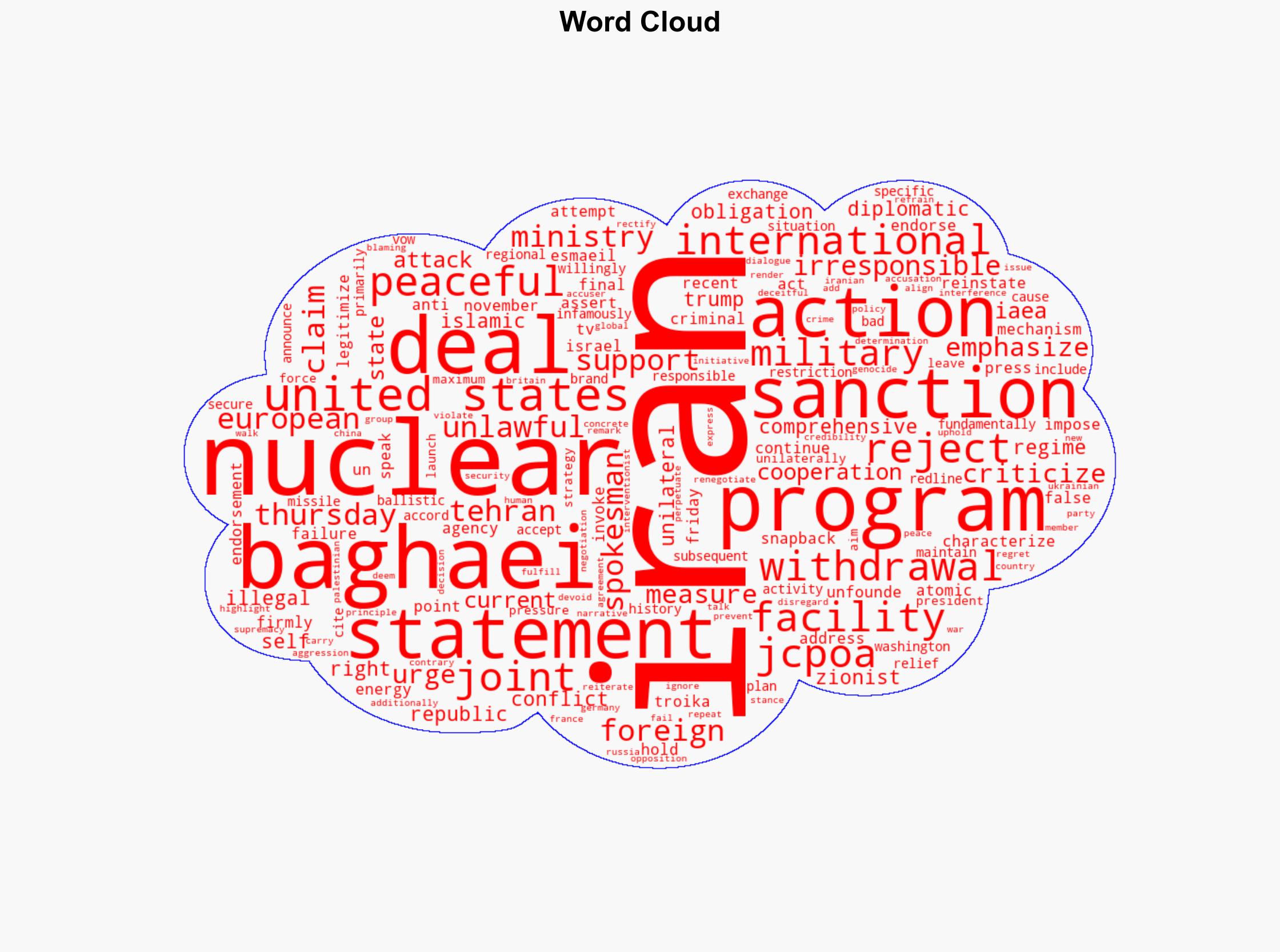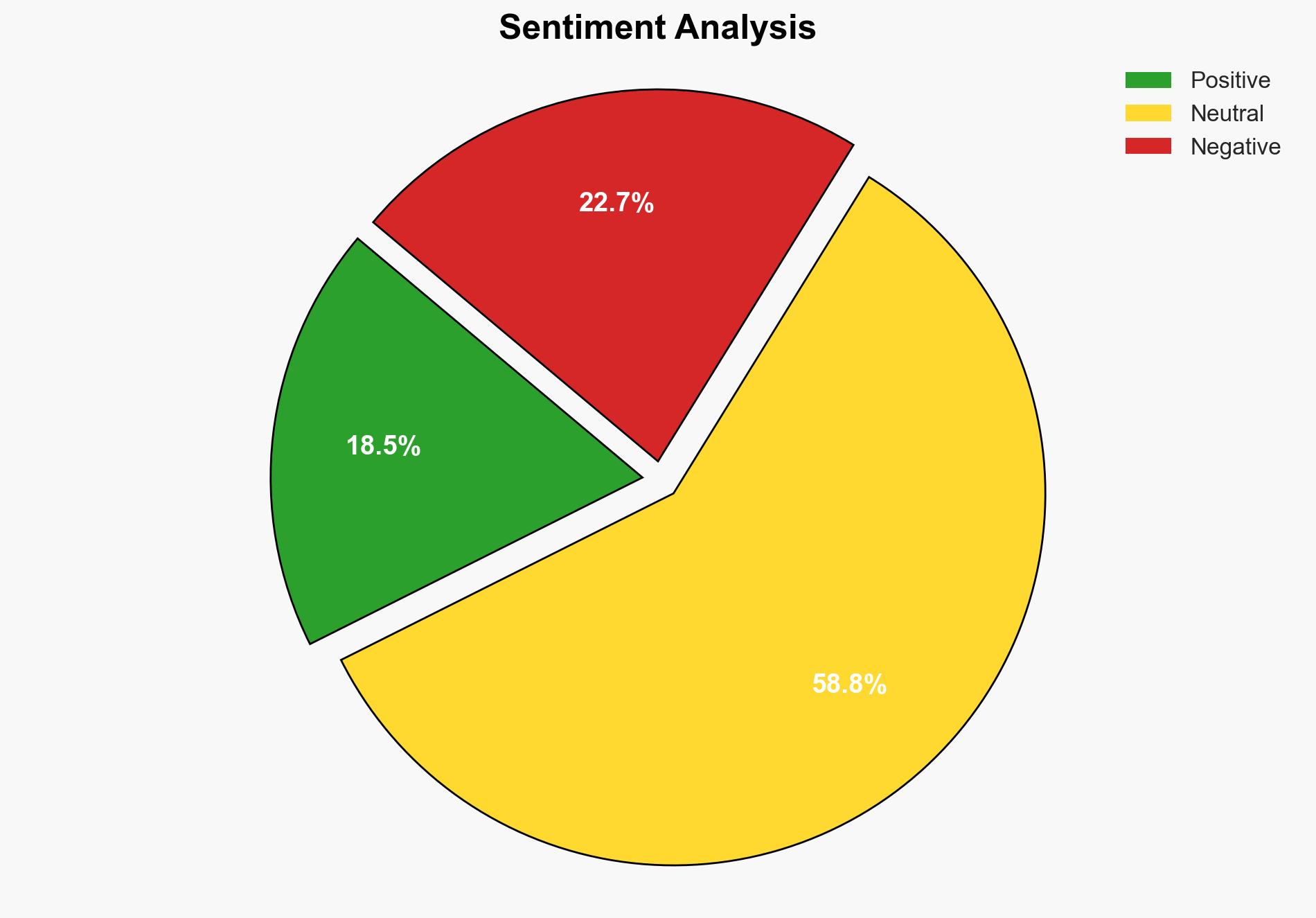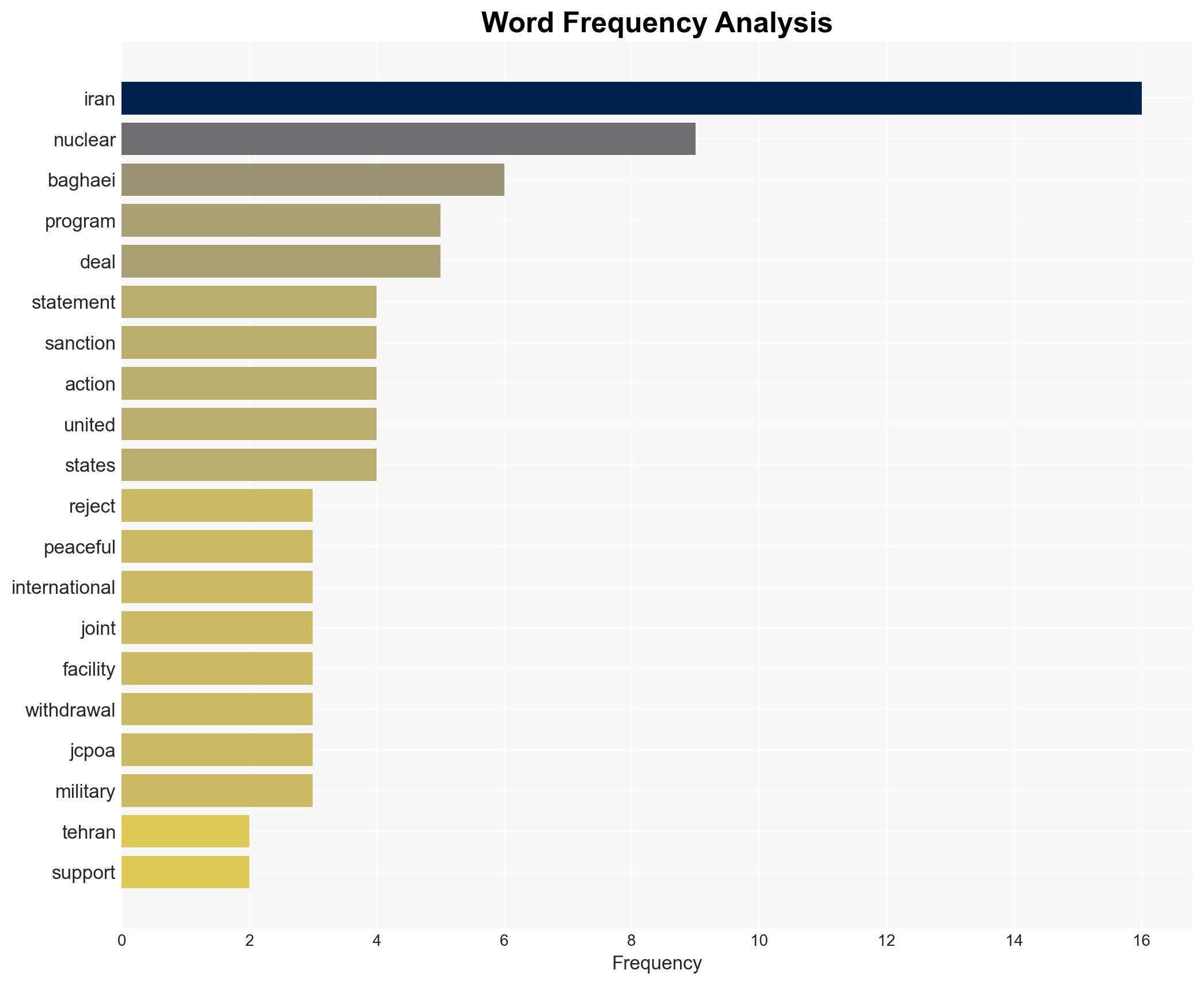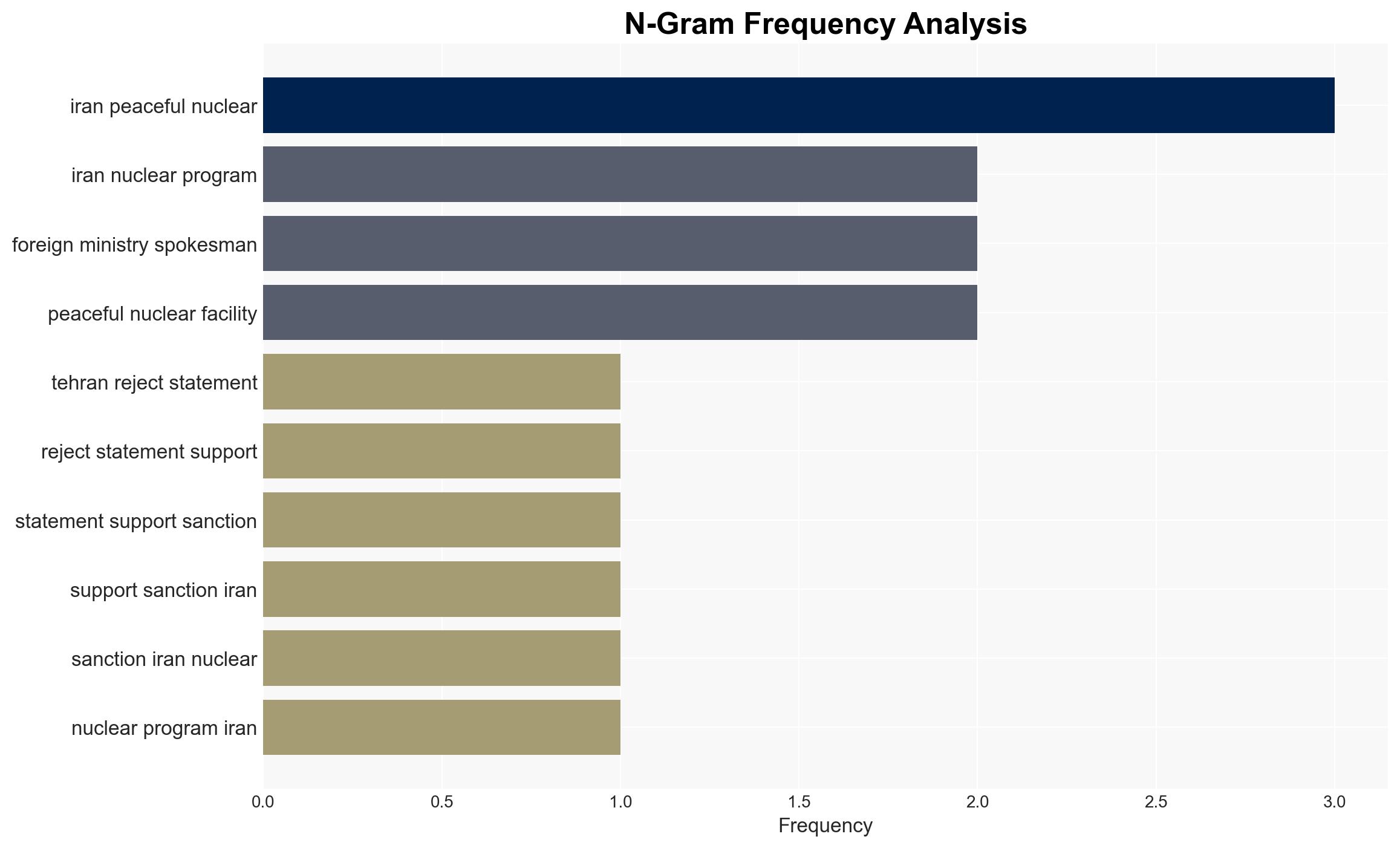Tehran rejects G7 statement supporting US sanctions on Iran’s nuclear program – Globalsecurity.org
Published on: 2025-11-14
AI-powered OSINT brief from verified open sources. Automated NLP signal extraction with human verification. See our Methodology and Why WorldWideWatchers.
Intelligence Report: Tehran rejects G7 statement supporting US sanctions on Iran’s nuclear program – Globalsecurity.org
1. BLUF (Bottom Line Up Front)
With a moderate confidence level, the most supported hypothesis is that Iran’s rejection of the G7 statement is primarily a strategic maneuver to maintain its nuclear program autonomy and resist external pressures, particularly from the US and its allies. Recommended action includes diplomatic engagement to de-escalate tensions and explore avenues for renewed negotiations.
2. Competing Hypotheses
Hypothesis 1: Iran’s rejection of the G7 statement is a strategic move to assert its sovereignty and resist perceived external pressures, particularly from the US, to maintain its nuclear program autonomy.
Hypothesis 2: Iran’s response is primarily a domestic political strategy to consolidate internal support by portraying itself as a victim of international aggression, thereby strengthening its negotiating position.
The first hypothesis is more likely due to Iran’s historical emphasis on sovereignty and resistance to foreign intervention, as well as its consistent narrative against US policies.
3. Key Assumptions and Red Flags
Assumptions: It is assumed that Iran’s statements reflect genuine policy positions rather than solely rhetorical posturing. Additionally, it is assumed that the G7’s support for US sanctions is perceived as a unified front against Iran.
Red Flags: Potential bias in interpreting Iran’s intentions due to historical tensions. Deception indicators include Iran’s potential exaggeration of threats to rally domestic support.
4. Implications and Strategic Risks
Continued rejection of international pressure could lead to increased geopolitical tensions, risking further isolation of Iran and potential escalation in regional conflicts. Cyber and economic retaliations are plausible, as well as increased propaganda efforts to sway international opinion.
5. Recommendations and Outlook
- Engage in multilateral diplomatic efforts to reopen dialogue with Iran, focusing on confidence-building measures.
- Monitor for signs of escalation in regional military activities or cyber operations.
- Best-case scenario: Renewed negotiations lead to a revised agreement that addresses both nuclear and regional security concerns.
- Worst-case scenario: Escalation into military conflict involving regional actors.
- Most-likely scenario: Continued diplomatic stalemate with periodic escalations in rhetoric and sanctions.
6. Key Individuals and Entities
Esmaeil Baghaei, Foreign Ministry Spokesman of Iran.
7. Thematic Tags
Regional Focus, Middle East, Nuclear Non-Proliferation, US-Iran Relations, International Sanctions
Structured Analytic Techniques Applied
- Causal Layered Analysis (CLA): Analyze events across surface happenings, systems, worldviews, and myths.
- Cross-Impact Simulation: Model ripple effects across neighboring states, conflicts, or economic dependencies.
- Scenario Generation: Explore divergent futures under varying assumptions to identify plausible paths.
Explore more:
Regional Focus Briefs ·
Daily Summary ·
Support us
·





